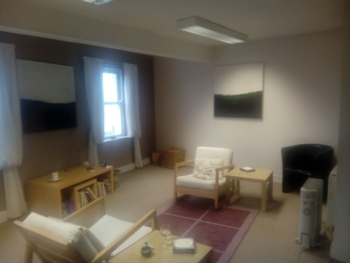
If I had a tenner for every time, I was told counsellors ‘just listen’, I would not be a wealthy woman, but I would have a decent holiday out of it! Counselling is a collaborative process where a safe, confidential, non-judgemental space is provided to help explore personal struggles.
Research indicates that talk therapy can be highly effective in supporting people struggling with anxiety and depression and life changes such as retirement, illness, relationship break-up and bereavement. Often a close death can activate feelings of previous losses and unresolved grief although we may not be conscious of this connection. If your struggles are impacting on your quality of life, your relationships or fear and hesitancy is causing you confusion then counselling can be a powerful process to support change.
While different counsellors vary in the degree to which they emphasis technique or behaviour, all will have as the primary intention to empower and support improvements in their client’s well-being.
Confusion is Normal
Ambivalence is a normal position when we are at a transition or crossroads in life. We ask ourselves where do I go from here? Maybe I don’t need change? Can I muddle along? Is the status quo okay? This treadmill of repetition can go on for many years and if often takes a crisis to provoke change. Stepping out of our comfort zones is always an act of courage. Counselling is not a quick fix but is a process for the courageous that takes time and effort to reap real rewards.
Although it is common to be unclear when we start counselling what we would like to achieve through therapy, your therapist will support you to explore your life and its uniqueness and over time gain clarity on subjective well-being goals. The comparison curse means we can be mired in comparing our lives to others and berating ourselves for not measuring up. It is a measure of some emotional maturity when we stop this comparing and recognize our lives are always different, contextual and unique. When we understand, express and have confidence in living our own values this comparing to others tends to fade.
This is why counselling always differs from a chat with friends or family. The effective therapist will not have an ‘agenda’ and will create enough psychological space in the counselling room for you to explore these fundamental questions. Our friends and family will always be partial and have their own agenda in relationships.
The best qualities of a great friendship exist when we find a therapist we trust; supportive, empathetic, honest, challenging and possibly even fun. But conversation is always purposeful, supporting you to improve the relationship you have with yourself, gaining self-awareness, personal insight, confidence and self-acceptance.
So yep, counselling is a lot more than ‘just listening’!. Get in touch if you want to talk in confidence.
